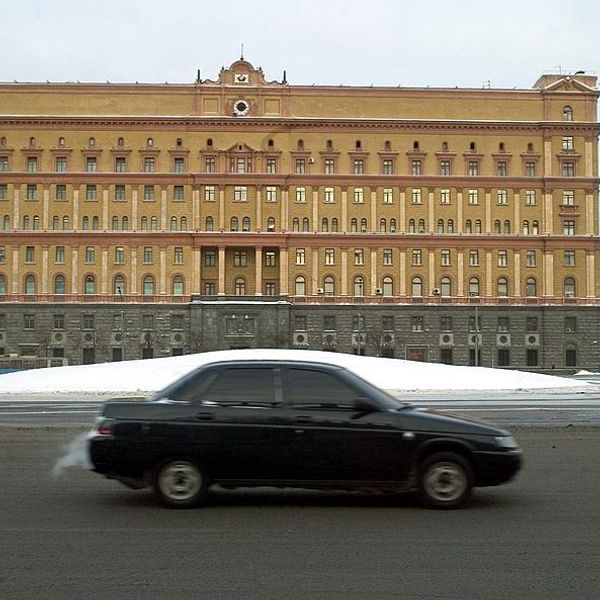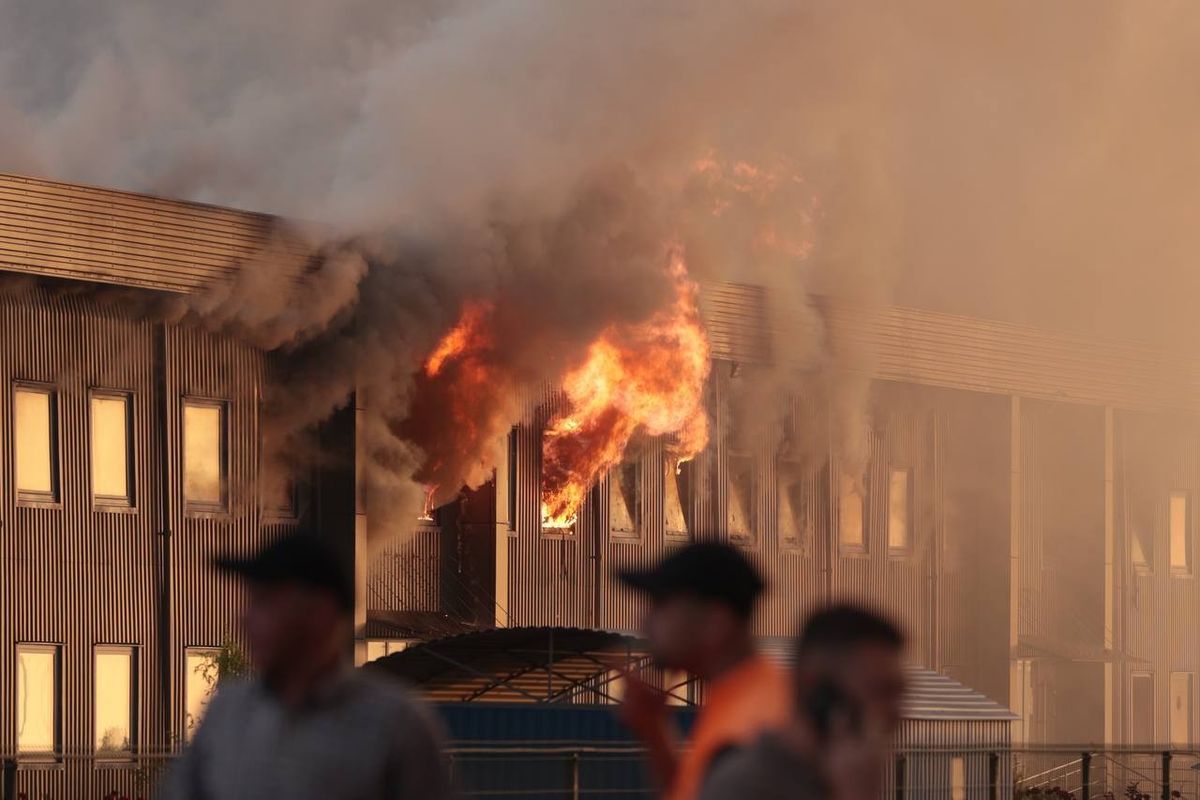Turkey’s President says he will announce details of his government’s investigation into the disappearance of Washington Post journalist Jamal Khashoggi on Tuesday. President Recep Tayyip Erdogan said he will “go into detail” in a speech to Turkey’s ruling party, according to the AP.
Cipher Brief Expert and former member of CIA’s Senior Intelligence Service, Emile Nakhleh writes about the broader implications of Khashoggi’s death and the difficulties of dealing with ruling families in states that have ‘trampled on legal and human rights norms’.
Anyone who follows how the tribal regimes in the Persian Gulf operate in their state-fiefdoms knows that no major decision—political, economic, social, military—is made domestically and internationally without the knowledge and approval of the senior leadership, particularly the ruling emir or king or his deputy or designated heir. For Mohammad bin Salman (MbS), the presumptive king of Saudi Arabia to claim that he wasn’t aware of the murder and possible dismemberment of Jamal Khashoggi, the Saudi Washington Post journalist, inside the Saudi consulate in Istanbul or that the murder was perpetrated by “rogue” elements inside that building, or that it was a result of an interrogation went bad, defies reason and flies in the face of available information.
Such a bogus claim might provide the Saudis, the Americans, and the Turks the requisite political cover to safeguard their economic interests, but it will not and should not stand in light of mounting information linking the Saudi regime headed by MbS to this grisly crime. Through electronic, audio, and video surveillance, American and Turkish intelligence agencies must by now know most of the members of the Saudi hit team sent from Riyadh to Istanbul, their specialties—interrogation, forensics, human body dismemberment—and their conversations during the short time it took to murder Khashoggi, dismember his body, and spirit it out of the consulate. Turkey, which has leaked selective information about the crime to the media, should reveal the full available information to the public and to investigators. Turkish intelligence agencies could easily sanitize such evidence of the sources and methods of its collection.
Surveillance should also provide intelligence agencies with an audio and video recording of the conversation among the Saudi assassination team while committing their gruesome crime. Turkish President Recep Tayyip Erdogan seems to possess such a record. Why hasn’t President Donald Trump demanded to review such a record? Sending his jovial Secretary of State to meet MbS and his father King Salman and take their denial at face value is a pathetic exercise in obfuscation and cover-up.
It is incomprehensible that Trump seems to know so little about how the crime was committed, who committed it, and on whose orders. In responding to reporters’ questions about the crime, Trump was childishly coy about whether FBI agents have gone to Turkey to investigate what happened. There is no way that a Saudi hit squad was dispatched to a foreign country without the full knowledge and implicit or explicit approval of the Saudi crown prince. This is even more incredulous in light of The New York Times reporting that a member of the hit team is closely linked to MbS and traveled with the crown prince recently. The Times also reported that the forensic doctor who accompanied the assassination team holds a high position in Saudi Arabia and is well known to MbS and his regime.
President George W. Bush showed unfathomable leniency toward Saudi Arabia following 9/11 when a team of Saudi hijackers/assassins hit the twin towers and killed nearly 3,000 innocent civilians. President Trump is spinning the same sort of “tolerance” toward the Saudi crown prince about his presumed knowledge and authorization of the plan to kidnap and assassinate Khashoggi, a permanent U.S. resident and Washington Post columnist. It’s heartening to hear that several Republican senators have condemned Saudi Arabia for the murder. They should, however, convert their critical words into specific legislation that would send a clear message to MbS that such a crime will not go unpunished.
In order to accept the incontrovertible culpability of MbS in Khashoggi’s murder, one must understand how major decisions are made in the tribal structures of Saudi Arabia and the neighboring emirates. The ruler—or a person authorized by him, usually the crown prince—makes the major political, economic, and military decisions. No major decisions in these areas are made without the ruler’s knowledge or approval. The parliaments and national assemblies have no independent legislative powers. They can neither check the power of the executive nor hold him accountable.
The media for the most is pliant or sycophantic. Any newspaper or publication that dares to question the regime, even in the most delicate way, as was the case with al-Wasat newspaper in Bahrain, is closed on a whim by a government order on behalf of the ruler, without any right or avenue to question such a decision. The regime closely supervises and often shuts down electronic social media outlets. Dissent is now covered under the most draconian terrorism laws in Saudi Arabia and neighboring Gulf Cooperation Council states. Jamal Khashoggi, like other peaceful and loyal dissidents, had to go into self-imposed exile for his own safety.
Persian Gulf tribal regimes often subvert the law to stay in power. Ruling families in these states have frequently trampled on legal and human rights norms to maintain their power against any domestic opposition. They have purchased some of the most sophisticated weapons from Western countries, including from the United States, to quell domestic demonstrations and protests. Washington, London, and Paris, which have sold the Gulf regimes most of these so-called anti-riot weapons, have known full well that they’re used to violate human and civil rights on a continual basis. Without checks and balances and accountability, tens of thousands of citizens in these tribal entities have been illegally arrested, subjected to sham trials, and locked up on spurious charges. No vibrant civil society institutions are permitted to operate in most of these countries, and certainly not in Saudi Arabia.
Rule in Persian Gulf emirates has been hereditary, generally passed down from father to son. The “hard” ministries—defense, security, finance—are usually run by trusted members of the ruling family, as are the military and security services. In Bahrain, for example, Khalifa bin Salman is the longest serving, unelected prime minister in the world. He’s been in that position since independence in 1971. In Oman, Sultan Qabus has been in power since independence 47 years ago, with no successor in sight. In the United Arab Emirates, political and military power resides with the crown prince, Muhammad bin Zayed of Abu Dhabi. His father, Zayed, was the only person to rule the UAE since independence, also in 1971. Qatar’s ruler, Tamim bin Hamad came to power following his father’s voluntary abdication. Qatar is the only GCC country in which rule was transferred from father to son peacefully as a result of the ruler’s decision to abdicate, and is the only place where the former ruler is still alive.
In order to survive in power, the ruling families have acted as units, rather than individuals, believing that the family was more important than any one ruler. Mohammad bin Salman has upended this, endangering the survival of the House of Saud. If Saudi Arabia and external influential actors, including the United States and Britain, are interested in the survival of al Saud rule, they should seriously take another look at the destructive behavior of MbS. Saner voices within the Al Saud family council should persuade King Salman to take another look at the succession plan and the long-term implications for Saudi Arabia should the present situation continue, Trump and Jared Kushner notwithstanding. Close American-Saudi relations since the mid-1940s have been based on the mutual and symbiotic interests of both countries regardless of who is president or who is king. It’s time to go back to this formula.
This piece was written by Cipher Brief Expert Emile Nakhleh and was first posted on the website Lobelog.














